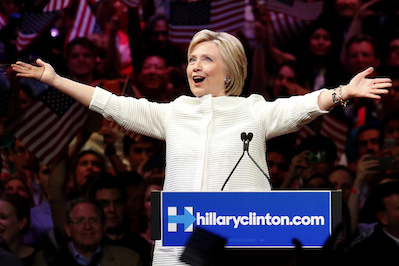AP’s Clinton ‘Victory’ Story Breaches Journalism Ethics and Public Trust
The Associated Press news organization became part of the electoral process by declaring Hillary Clinton the Democratic nominee on the eve of primaries in California and five other states. How the AP arrived at that conclusion remains suspect. 1
2
1
2
This year, we’re all on shaky ground, and the need for independent journalism has never been greater. A new administration is openly attacking free press — and the stakes couldn’t be higher.
Your support is more than a donation. It helps us dig deeper into hidden truths, root out corruption and misinformation, and grow an informed, resilient community.
Independent journalism like Truthdig doesn't just report the news — it helps cultivate a better future.
Your tax-deductible gift powers fearless reporting and uncompromising analysis. Together, we can protect democracy and expose the stories that must be told.
This spring, stand with our journalists.
Dig. Root. Grow. Cultivate a better future.
Donate today.








You need to be a supporter to comment.
There are currently no responses to this article.
Be the first to respond.